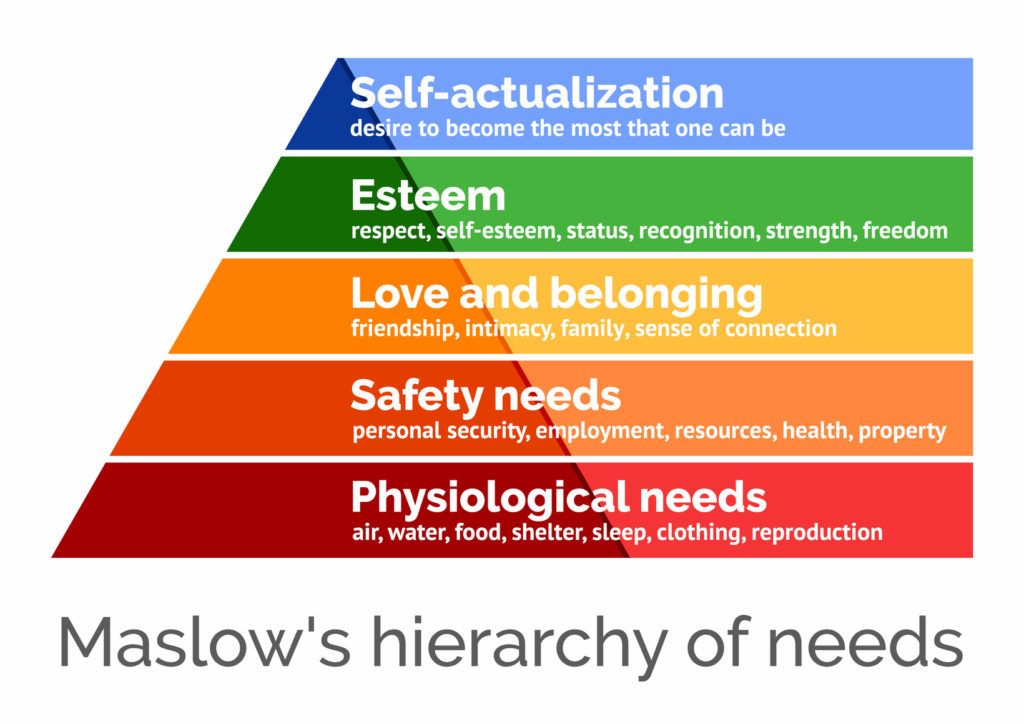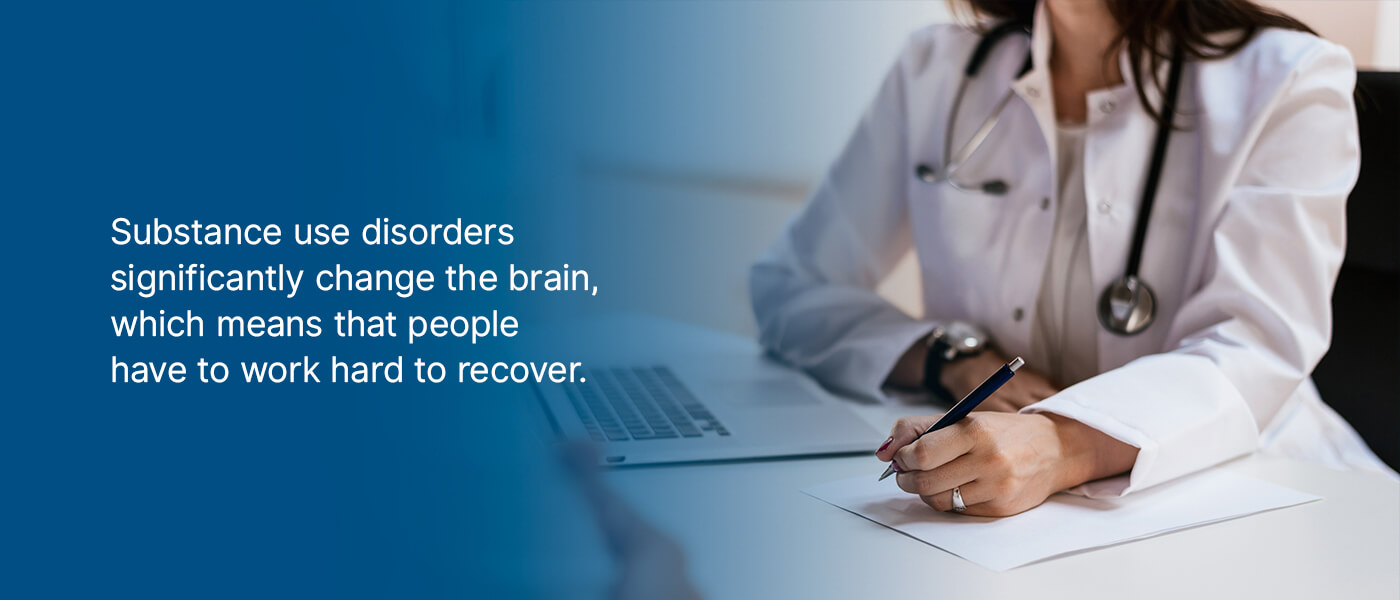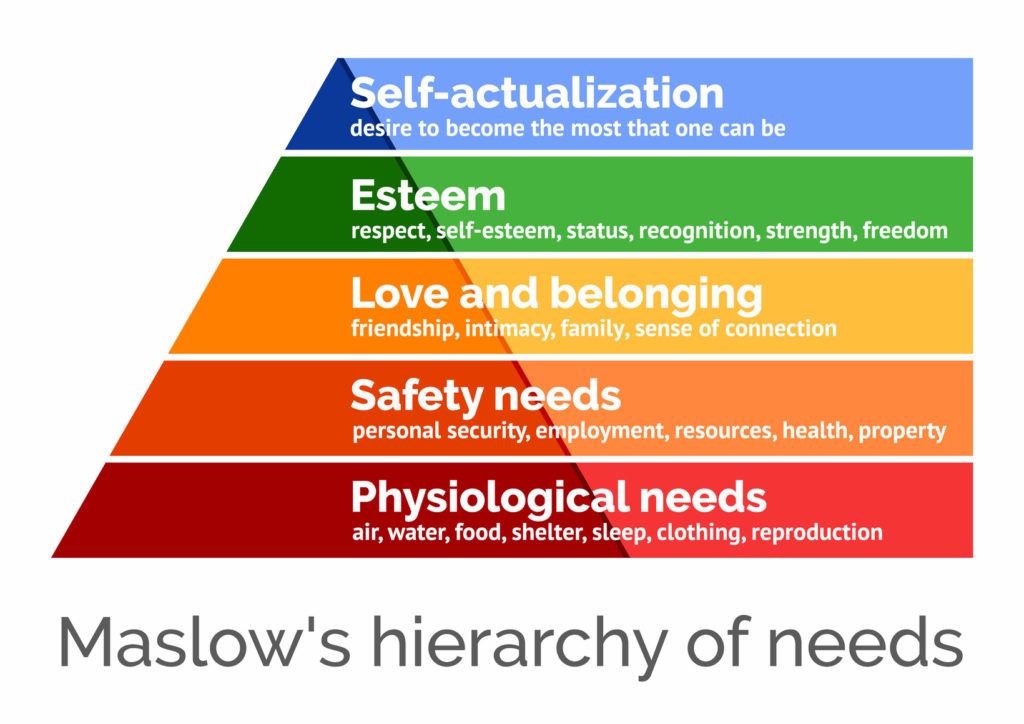An evaluation and detox are usually the first steps in addiction treatment. Treatment specialists create a specific treatment plan based on the patient’s health, mental condition, and substance usage history during this stage. Call today to speak with an expert: (866) 781-3882.
The science behind addiction has come a long way in the past 20 years along with the growing prevalence of substance use disorders around the world. Many people still want to believe that substance use disorders only affect the weak-willed. They see it as a character flaw instead of an actual disease. However, when looking closer at the science explaining the way substance misuse affects the human brain, it’s undeniable that it acts and affects people physically just like any other disease.
What Is a Disease?
Simply put, a disease is a medical condition that prevents the body from functioning normally. Diseases such as type-1 diabetes, lupus, rheumatoid arthritis and other chronic conditions have effects that afflict individuals on some level for their entire lives. The long-term effects of addiction are no different.
Many diseases are considered incurable, but people do experience “remission” and alleviation of disease symptoms. Substance use disorder is no different. Individuals who have experienced a substance use disorder will always be susceptible to relapse and may share the predilection for substance misuse with their children. Just like any other disease, addiction requires ongoing care or “check-ups,” to prevent these relapses.
Substance Use Disorder in the Brain
Understanding how dopamine works in the human brain is at the very basis of understanding how substance use disorder acts as a disease in the human body. In a normal functioning brain, there are natural levels of dopamine.
Dopamine is a neurotransmitter that encourages us to seek out basic pleasures like eating, resting, and other enjoyable activities that make us feel good and trigger the release of dopamine in the brain. These normal levels of dopamine basically want to ensure we satisfy Maslow’s hierarchy of needs, pushing us to engage in behaviors that keep us happy, fulfilled and at the most basic level, alive.

While basic and pleasurable actions will release dopamine, so will unhealthy ones like using drugs or alcohol. Drugs often trigger this release faster and to a much higher degree. Using opioids or other drugs creates an enormous, euphoric rush of dopamine in the brain stronger than what the body can produce naturally.
When the rush of dopamine leaves the brain, individuals can feel depressed, anxious and have physical withdrawal symptoms. It’s difficult for the brain to replicate that intense level of “pleasure” or “happiness” naturally, thus requiring more of the drug to feel normal. This isn’t just a feeling. The brain will literally feel as though the only way it can continue to survive is by seeking out more of the substance that has allowed it to feel such massive rushes of pleasure.
When someone is fully in the grips of addiction, their brain will not be content with just a normal dose of the drug it seeks. It will consistently require a larger dose every time to achieve a high as pleasurable as the very first time they used it. This is why addiction is often described as a “chase” where people are always seeking out that “first time” feeling.

How Substance Use Disorders Change the Brain
While drugs and alcohol have immediate, short-term effects, they also make long-term changes to the brain. Drugs and alcohol affect the basal ganglia, which controls the brain’s “reward circuit” that gives people a feeling of pleasure. Frequent substance use over-activates the basal ganglia and lowers their sensitivity to pleasurable sensations. This lowered sensitivity eventually prevents people from feeling pleasure from anything other than substance use.
Substance use also changes the extended amygdala, the part of the brain that affects stressful feelings such as unease, anxiety and irritability. Drugs and alcohol increase the extended amygdala’s sensitivity over time, which causes people to feel unpleasant feelings more often and to a higher degree. The brain requires more of the substances that caused it to change to find relief from these uncomfortable feelings.
Another brain area that substances affect is the prefrontal cortex, which controls thinking, problem-solving, planning, self-control and decision making. Drugs and alcohol affect the circuits that connect the prefrontal cortex to other parts of the brain, which reduces a person’s impulse control and causes them to seek the addictive substances compulsively. The prefrontal cortex is the part of the brain that matures last — teens are especially vulnerable to changes in the brain from substance use because their prefrontal cortex is still developing.
Many people incorrectly believe that those who are still experiencing substance use are “weak-minded” or generally bad people. The truth is that substance use disorders can affect people of any background, emotional state and mental strength. Some of the strongest and most well-intentioned people can experience a substance use disorder.
The easiest way to look at the changes made in the brain during the height of addiction is to look at people who are in recovery. People who experience a substance use disorder often cite the mental strength and motivation it took to persevere through treatment and improve their life through recovery. Substance use disorders significantly change the brain, which means that people have to work hard to recover. Individuals with substance use disorders are not weak-minded — they simply need guidance through the recovery process.
There are a number of evidence-based treatment programs, particularly for opioid use disorder, that can provide relief of physical withdrawals and cravings. However, to experience long-term recovery, the person will have to continually work on the causes and effects of the disease. Particularly because of the profound change to the dopamine structures in the brain.
The reward system in the brain, once altered, is very difficult to treat entirely. This is why millions of people have succumbed to the opioid epidemic in America. Many innocent people who used prescribed pain medications for their back surgeries or root canals unwillingly developed an opioid use disorder. Considering addiction can affect people from all different walks of life, from rich to poor, educated to the most marginalized in the nation, we must continue to research and work to understand how substances affect the brain.
Treating the Disease
Major advancements have been made in addiction science to help create treatments for those who seek them. Methods such as counseling and medical assistance that help people deal with withdrawal symptoms and the accompanying psychological effects have become more accessible to millions of Americans.
Counseling & Behavioral Therapy
Most people who are suffering from addiction are dealing with co-occurring mental health conditions, which makes therapy and drug counseling especially important. Through individual counseling, group counseling and other therapies, individuals can work through their mental health conditions that may contribute to or worsen their substance use disorder. By addressing these conditions and developing coping strategies, they can learn how to manage their feelings in healthy ways.
Medication-Assisted Treatment
Some substances, such as opioids, cause intense physical and mental withdrawal symptoms. Using FDA-approved medication-assisted treatment (MAT) programs combined with counseling can ease those symptoms. Opioid addiction is a disease, and medications such as buprenorphine and naloxone can reduce the physical and mental effects of withdrawal so that individuals can focus on other areas of recovery, such as their mental health.
Pursue Recovery At a MedMark Treatment Center
One of the biggest hurdles people overcome while experiencing a substance use disorder is its stigma. A substance use disorder is not a weakness or something to be ashamed of. It is a disease that requires treatment, and people should feel comfortable reaching out for help. People who are sick deserve to seek medical treatment without fear of judgment. Once we start comprehensively treating addiction as the disease it is, we will finally be able to start combating the toll it’s taking on many innocent lives.
At MedMark, we are passionate about providing substance use disorder treatment and improving the lives of the patients we serve. We believe that medication-assisted treatment combined with counseling services can help individuals remain committed to recovery and work toward reclaiming their lives. All of our locations are state-licensed and federally certified. We are also accredited by the Commission on Accreditation of Rehabilitation Facilities (CARF), signaling our commitment to meet or exceed industry standards of care.
Contact us to learn more about how we can help you or a loved one pursue recovery.

